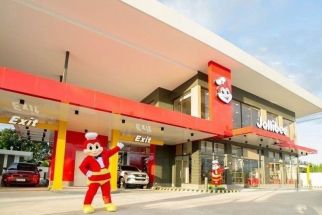Metro Pacific sees another banner year
Metro Pacific Corp. expects this year's profit to stay within the same level as last year -- which was the biggest in its corporate history -- even as it prepares to get rid of more non-core assets in line with its transformation into a purely property company.
MPC president and CEO Ricardo Pascua said that while it will still take them two years to refocus the company into a holding firm mainly for its property businesses, their operations will continue to be affected by the ongoing restructuring and consolidation of their subsidiaries.
Last year, a series of divestments led by the combined P2.2-billion sale of its two consumer product subsidiaries -- Metro Bottled Water Corp. and Metrolab Industries Inc. -- enabled MPC to realize a P2.4-billion net profit, more than seven times its P329-million income in 1998.
MPC, the Philippine flagship of the Hong Kong-based conglomerate First Pacific Ltd., also sold off its direct interest in Smart Communications through a share-swap involving an eight percent stake in PLDT.
Pascua said their investments in animal health products maker Metrovet Inc. (100 percent), packaging firm Steniel Manufacturing Corp. (73 percent) and domestic ferry line Negros Navigation Co. Inc. (55 percent) could be put on the auction block within the year.
MPC chairman Manuel V. Pangilinan said their two-pronged approach of realizing value through the divestment of non-core assets while enhancing value in their core businesses has "resulted in developing organic investments into market leaders, principally in the real estate market."
"The need to sharply focus on the property business implies a strategy of rationalizing our portfolio of other businesses further. This may mean partnering with strategic investors, turning around losing companies, or divestment if the opportunity arises," he added.
The bulk or 84 percent of MPC's assets are now in property, through anchor firm Fort Bonifacio Development Corp. -- its joint venture with the Bases Conversion Development Corp.
MPC controls 66 percent of Bonifacio Land Corp., the consortium that holds 55 percent of FBDC, the developer of the Bonifacio Global City along the Makati-Taguig border. FBDC had a particularly strong net profit record last year amounting to P2.4 billion due to land sales in the 214-hectare site.
MPC also owns 66 percent of Landco Pacific Corp., which made a P21.3-million profit in 1999 despite a struggling property sector. Landco's projects are mainly in high-end resort development and commercial and theme parks such as Peninsula Punta Fuego, Canyon Woods, Batulao Woodlands, Waterwood Park, Ridgewood Park and Lakewood City.
- Latest
- Trending































